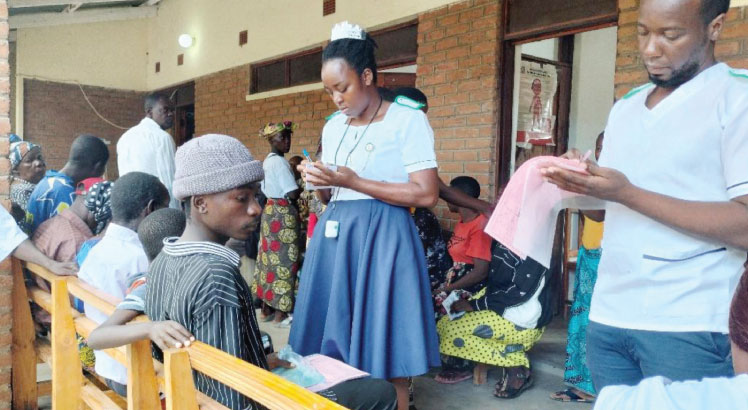Patients prone to abuses in 70% hospitals—report
Patients in 70 percent of the country’s public health facilities are prone to unchecked abuses due to underperformance of a government initiative to strengthen reporting and investigating complaints, The Nation has established.
The Hospital Ombudsman (HO) initiative, led by the Office of the Ombudsman (OoO), targeted to deploy monitors in the country’s 1 800 health facilities.

However, according to the OoO 2022 Annual Report presented in Parliament last month, HOs were only assigned to 532 facilities, representing 30 percent.
Reads the OoO report: “In terms of hospital ombudsman, as of 31st December 2022, out of 1 800 health facilities in the country, only 532 facilities had fully trained Hospital Ombudsman.
“This is due to resource constraints and inadequate human resource at the OoO to facilitate the training and scaling up of the mechanism.”
The programme was being implemented under the Scaling Up and Rolling Out Sectoral Ombudsman Initiative. It was one of the five public sector reform areas the OoO was undertaking between 2018 and 2022.
The HO, a Ministry of Health employee, operates under the OoO and is empowered to “investigate, mediate and provide remedies to complaints lodged by service users, their representatives and other stakeholders in relation to a hospital’s service”.
The healthcare workers’ misconduct they handle includes negligence, incompetence, breach o f c o n f i d e n t i a l i t y, di s c r iminat ion and disrespecting an individual’s dignity, according to the report.
Meanwhile, Malawi Health Equity Network (Mhen), an alliance of 95 civil society organisations in the health sector, has fumed over the failure to fully implement the initiative.
In an interview last week, Mhen executive director George Jobe warned that failure to have HOs would lead to escalation of abuses against patients.
He said where there is no HO, healthcare workers tend to shield each other in the face of misconduct, leaving patients vulnerable.
Said Jobe: “The initiative to have a hospital ombudsman recruited by the Office of the Ombudsman directly is a good development. This is what we have been praying for so that the officers are not conflicted when, as the culprits of malpractices used to be, their fellow employees.”
As we went to press, the OoO and the Ministry of Health were yet to respond to our questionnaires seeking to find out the amount of funds required to implement the initiative and what the future holds.
However, on his part, Parliamentary Health Committee chairperson Mathews Ngwale blamed the initiative’s failure on poor coordination on resources mobilisation among the implementers.
He said: “It starts from budgeting. I do not know if there was such a budget line. When the budget was being formulated, we were not consulted.
“For example, the chairperson of health is the one who chairs the health cluster when it comes to the budget sessions and the Office of the Ombudsman never came to us to ask for support in that area.”
In an interview, Islamic Health Association executive director Hajj Daiton said other that installing the HOs, there was a need for government to enhance awareness so that the public is aware of.
He said: “We have several gaps that need to be bridged. For instance, how do health seekers know that there is an ombudsman at a given facility, and how do they trust them to be impartial?”
The 2022 annual report signed said the OoO has so far developed and distributed 10 000 information, education and communication materials, which carried messages on roles of the HOs.
The concept was launched in 2018.
Though not fully implemented it has proved to be effective as in 2022, around 327 complaints were solicited through the hospital ombudsman, according to the OoO annual report.






One Comment